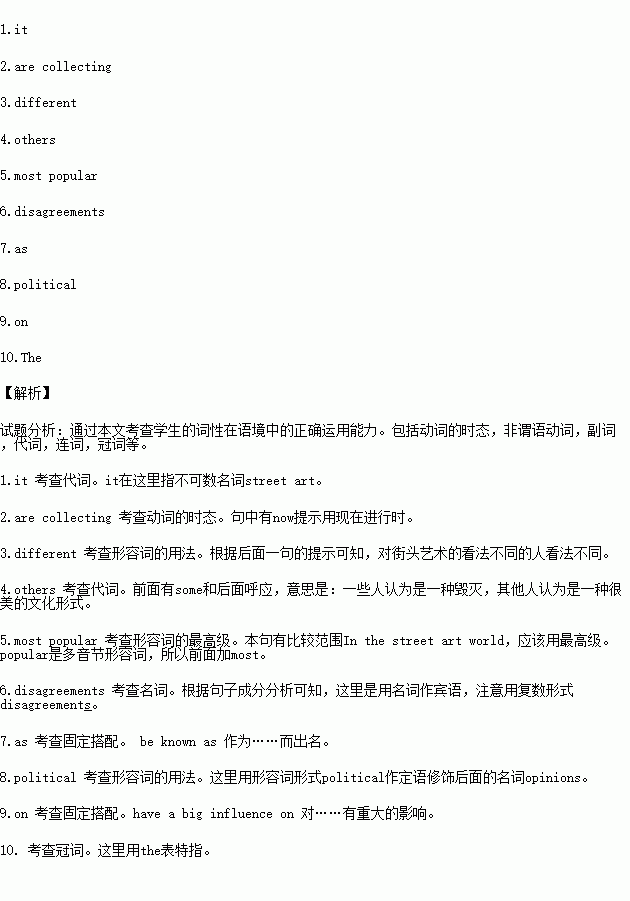题目内容
语法填空
Street art is a very popular form of art that is spreading quickly all over the world.You can find 1. on buildings,sidewalks and street signs.Now even art museums and galleries 2. (collect) the works of street artists.
People often have 3. opinions about street art.Some think it is a kind of destruction and 4. think it is a very beautiful new form of culture.
In the street art world,graffiti (涂鸦) can be the 5. (popular).It began in New York in the 1960s.First some young people painted words and images on the walls.They found the paintings could show their 6. (disagree) against society.Later,this colorful,energetic style of writing became known 7. graffiti.
Street artists do this for a reason.Some of them think they are closer to the people,while others try to express their 8. (politics) opinions.
In today’s world,the Internet has a big influence 9. street art.Artists can show their pictures to audiences all over the world.10. street art movement lives with the energy and life of cities.It will continue to change and grow.

